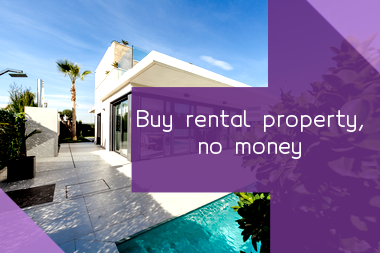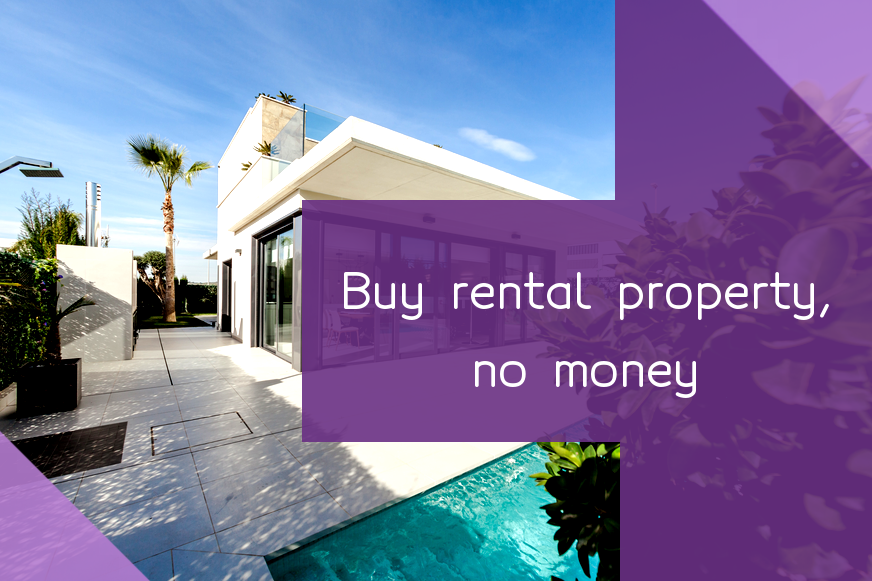It is possible to buy your first rental property with no money down, but it requires some creativity and effort. Here are some steps to follow:
- 1. Look for Very Motivated Sellers: Look for property owners who are inclined to sell the property quickly and may be open to creative financing solutions. This way, you can find a seller who is willing to sell with the lowest possible down payment or no down payment at all.
- 2. Find a Partner: Look for a partner who is willing to join you in the investment. Someone who has some cash to offer would be beneficial. This way, you can divide the down payment responsibility, and you can both own the rental property together.
- 3. Utilize Hard Money Lenders: Look for a hard money lender who can provide a loan for a short period. This form of lending could require minimal down payment, making it possible for you to buy your rental property with no money down.
- 4. Consider Seller Financing: With seller financing, the seller acts as the lender for the property and provides flexible repayment options. This way, you can negotiate with the seller to avoid putting in a down payment or to have a small down payment.
- 5. Look for Lease Options: A lease option is a right given to a buyer to purchase a property at a specified price and terms, often used as a lease to purchase agreement. You can use this type of agreement to acquire the rental property with minimal or no down payment.
- 6. Join a Real Estate Investment Group: Joining a real estate investment group can provide you access to other investors willing to partner with you in the venture. With the partnership, you can amalgamate your resources to acquire the rental property without any down payment.
With these strategies, you can acquire your first rental property with no money down. However, before taking any action, its critical to do your research and consult a real estate attorney to avoid any legal or financial pitfalls.
Buying Rental Properties Requires Money & Skill
- 1Determine your investment strategy and goals: This includes deciding on the type of properties you want to invest in, the location, the rental income you expect to generate, your budget, and your timeline.
- 2Assess your finances: Determine your credit score, income, and debt-to-income ratio, as well as the cash you have available for a down payment and other expenses involved in the purchase.
- 3Research properties: Use online resources, consult with real estate agents or property management companies, and network with other investors to find potential properties that meet your investment strategy and goals.
- 4Conduct due diligence: This includes obtaining property inspections, reviewing financial documents, analyzing market trends, and assessing potential risks and returns.
- 5Secure financing: If you do not have cash to purchase the property outright, you will need to secure financing either from a bank or other lenders.
- 6Negotiate price and terms: Once you locate a property you are interested in, you will need to negotiate the purchase price and other terms of the transaction.
- 7Close the deal: Once the purchase price and terms have been agreed upon, you will need to finalize the purchase with the assistance of an attorney or real estate agent.
- 8Prepare the property for rental: This includes ensuring the property is clean and in good repair, and making any necessary renovations or upgrades to attract tenants.
- 9Find tenants: Advertise the property for rent, screen potential tenants, and sign leases.
- 10Manage the property: Ensure rent is collected on time, respond to tenant needs and maintenance requests, and manage any issues that arise during the tenancy.
Note that this is a general overview and the specific steps and requirements may vary depending on your location and the type of properties you are interested in investing in. It is recommended to consult with professionals such as real estate agents, attorneys, and financial advisors to ensure you understand the process and requirements before investing in rental properties.
Buying a rental property with no money down
Buying a rental property with no money down means using creative financing techniques to purchase a property without putting any of your own money up front. Some possible methods for this include:
- 1Seller financing: The owner of the property agrees to finance the purchase by taking a mortgage on the property instead of requiring a down payment.
- 2Borrowing money from private investors: Instead of borrowing from traditional lenders, private investors can provide the capital needed to purchase the property with the agreement of sharing in the profits.
- 3Partner with someone who has money: Partnering with someone who has capital to invest in the property and shares the costs and profits accordingly.
- 4Find a property with a low price: By finding a property with a low asking price and negotiating good terms with the seller, it may be possible to avoid paying a down payment.
It should be noted that buying a rental property with no money down is usually not a realistic possibility for most people. Additionally, those who manage to do so will likely make substantial compromises in order to find a suitable property at such a low price. It's advisable to seek the advice of real estate experts or professionals before taking up this strategy.
More ideas to buy a rental property with no money down
- 1) Partner with other investors: One option is to partner with other investors who have funds for down payment. You can offer them a share of the profits in lieu of putting down a percentage of the purchase price.
- 2) Seller Financing: You can ask the seller to carry the loan and agree on favorable terms such as a low-interest rate, a longer repayment period or a lower down payment.
- 3) Lease with option to buy: You can enter into a lease agreement with the seller where a portion of your monthly rent payments will go towards the purchase price of the property. Once you have accumulated enough equity, you can then exercise the option to purchase the property.
- 4) Government Programs: You may be eligible for government-backed programs such as VA loans, USDA loans or FHA loans that offer low or no money down payment options to eligible individuals.
- 5) Home Equity Loans/Credit Lines: If you already own a property, you can leverage its equity to fund the down payment for the rental property. This is also known as a cross-collateralization or home equity loan.
- 6) Private lenders: You can approach private lenders who are willing to finance the purchase of the property with favorable terms such as low-interest rates or a small down payment. To attract potential private lenders, you will need to provide a solid business plan outlining the potential income and profitability of the rental property.
- 7) Crowdfunding: You could also use crowdfunding platforms to collect small amounts from a large number of people towards the down payment of the rental property.
Besides these options, it is important to conduct thorough research, seek professional advice and negotiate with the seller to get the best terms possible.
Just one more thing: if you liked the article, please like us on social media and share this article with friends.



